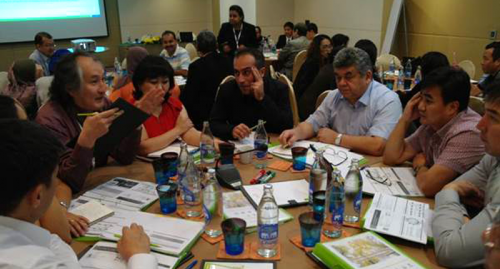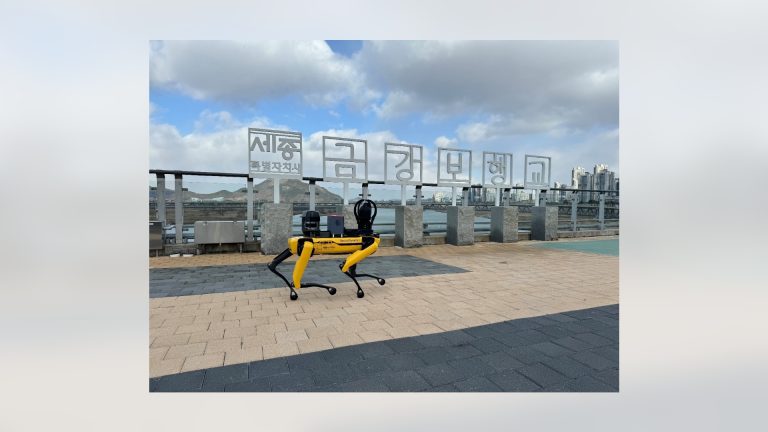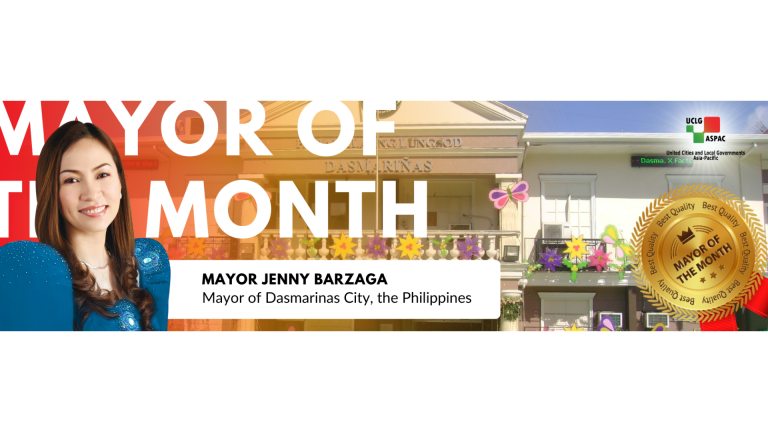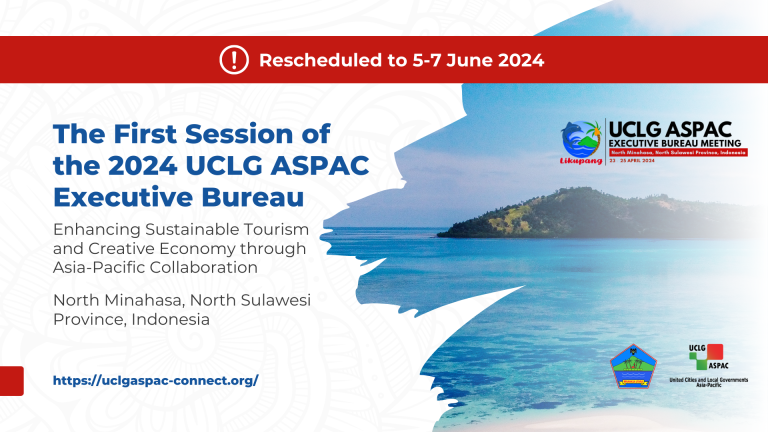AN ‘eco-city’’ is defined as an ecological healthy human settlement modelled on the self-sustaining resilient structure and function of natural ecosystems and living organism. Cities that have the following general characteristics are considered as eco-cities such as:
- Protection and growth of green space.
- Public transportation systems that reduce pollution and waste of energy.
- Efficient solid waste management system.
- Policies that promote environmental conservation, involvement of people in ecological preservation.
However, an eco-city paradigm and city-based initiatives tend to follow uni-dimensional or tri-dimensional approaches for sustainable development in that they focus on some limited environmental, economic and/or social component.
Consequently, they result in a partial approach to the nature of sustainable development.
On the other hand, an “environmental hub’ is defined as a globally distinguished city realizing sustainable development through the harmonization among social, economic and environmental component in an integrated framework placing environment as the top value. Therefore, the environmental hubs are the regions which have the multi-dimensional hubs are the regions that are shining examples of how the society as a whole including environment can thrive in terms of the triple bottom line of sustainability (nature, people and economy) within sound, effective and efficient policy framework for environmental protection.
For cities to become environmental hubs, under the environment sector, cities need to promote realizing resource circulation-based society through waste management in that reducing waste generation, establishing the system of waste resource circulation and energizing waste are three main strategic projects. That is why it is crucial to note that the biggest opportunity in dealing with waste is found in holistic approaches that take both consumption and production into account and apply a life-cycle perspective.
Managing waste from all sources (municipal or industrial) and in all forms (gas, liquid or solid) starts with preventing waste from being generated in the first place. Moreover, where waste cannot be prevented completely, opportunities arise from treating it as a resource, by converting it to other uses or recycling it.
A preventive and holistic approach to waste management can help rapidly industrializing and urbanizing countries in the Asia-Pacific region in particular.
A training will provide participants in the Asia-Pacific region with a comprehensive overview of a holistic approach to integrated waste management and of strategic for cities to become environmental hub. This training aims to enhance the capacity of central and local government officials and other related personnel in the waste management, land planning and finance sectors to make an informed decision about strategies and technologies which will satisfy the needs of their own countries and communities,
Through an exchange of knowledge and good practices, this training aims to provide an overview of clean and sustainable strategy options for holistic waste management and offer insights into contemporary city paradigms and international trends in transforming eco-cities to environmental hubs, Country-to-country or city-to-city cooperation will be encouraged throughout the training in order to materialize lessons learned into an action plan for implementation
Learning objectives
- Adopt a life-cycle approach and policies for resource efficiency and environmentally sound waste management.
- Use approaches that recognize the 3Rs, increasing energy from waste and treating waste as a resource.
- Discuss the role of holistic waste management in transforming eco-cities to environmental hubs.
- Address the problems associated with unsound waste management.
- Identity the benefits and drawbacks associated with a range of waste management strategies.
- Apply basic principles to determine the most suitable waste management strategy in a given situation
- Share best practices of their own countries or communities.
The training will include the following topics of discussion:
- Holistic waste management overview.
- National and city level waste management.
- Green growth policies.
- Template and guidelines for holistic waste management.
- Eco-cities and environmental hubs.
- How to develop waste management strategy.
- Action plan to implement waste management strategy.
Event type is workshop on 6-9 July 2015 in UNITAR Jeju International Training Centre (JIT) and International Convention Centre (ICC), both in Jeju-do), Republic of Korea.
This training is sponsored by the Ministry of Science, ICT and Future Planning (KOREA-UNDP Fund) and organized by UNITAR, UNITAR CIFAL Jeju/JITC, UNEP International Environmental Technology Centre.
Requirement
Selected participants are required to submit necessary documents on time, application form etc.; to complete and submit pre-training readings and assignments i.e. case studies; to be actively participate in the training program; must be fluent in written and spoken English.
Application and all related documents (application form, CV, case study description, letter of nomination, letter of commitment) should be sent to cifaljeju.env@gmail.com by 29 May 2015 (Friday). Late application will not be accepted.
Application form can be found in our website: http://www.cifaljeju.org.
Participation is subject to approval and the application by UNITAR CIFAL Jeju/JITC and selected participants will be notified individually.
Assistance with travel expenses comes as follows:
- UNITAR, CIFAL Jeju/JITC provides a limited financial assistance with the airfare to Jeju-do, Republic of Korea.
- Local expenses (transportation, accommodation and meals) during the workshop will be covered by the KOREA-UNDP Fund.
- All other expenses are the responsibility of the participants.
Points of departure and airfare assistance limit
- Eastern Asia (China, Hong Kong, Macau, Japan, Taiwan): US$ 300 and US$ 400 from Mongolia.
- South-Eastern Asia (Brunei, Indonesia, Malaysia, Philippines, Singapore, Thailand, Vietnam): US$ 450; US$ 450 from Cambodia, Laos; US$ 650 from Myanmar.
- Southern Asia (Afghanistan, Bangladesh, Bhutan, India, Maldives, Nepal, Pakistan,): US$ 800; US$ 700 from Sri Lanka; US$ 950 from Nepal.
- Pacific Islands (Kiribati, PNG, Samoa, Tuvalu, Vanuatu): US$ 1,200.
- Other points of departure, kindly please contact UNITAR CIFAL Jeju/JITC.
Program (6-9 July 2015, Monday-Thursday)
Day 1 (6 July, Monday)
- Session 1: “International Cooperation in Developing Countries by Osaka City Government”; “Financing of Technology Transfer” by Korea Technology Finance Cooperation (KOTEC)
- Session 2: Holistic waste management overviews by UNEP IETC.
- Session 3: “National and city level management” by UNEP IETC.
Day 2 (7 July, Tuesday)
- Session 4: “Korea’s green growth policy and eco-town models” by Chung Ang University.
- Session 5: “Template and guidelines for holistic waste management” by UNEP IETC.
- Session 6: “2020 Jeju World Environmental Hub” by Jeju Self-Governing Province.
- Session 7: “Enhancing cooperation network for the establishment of ‘World Environment Hub’.
- Session 8: “Eco-town, the exemplary, environmentally sustainable cities of the world” .
- Special session: “Regional Summit Dialogue”
Day-3 (8 July, Wednesday)
- Session 9: “How to develop waste management strategy”
- Session 10: “Action plan to implement waste management strategy”
- Session 11: Leaders’ Dialogues
Day-4 (9 July, Thursday)
- Session 12; UNITAR CityShare Methodology
- Action plan writing.
- Site visit to “Smart Grid” and “Seongsan Ilchulbong”.











